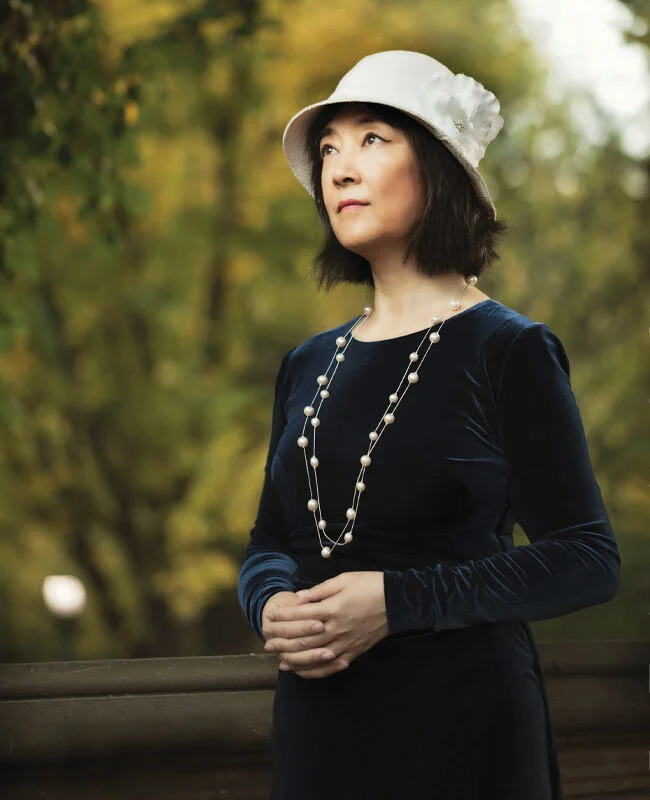Jennifer Zeng’s Story of Finding Light in the Darkness
Jennifer Zeng survived torture and imprisonment in China by holding onto her faith
Writer Jared Pearman
Twenty years ago, Chinese authorities arrested Jennifer Zeng as part of a nationwide crackdown on her faith, the persecuted meditation practice of Falun Gong. After her release from the labour camp, she managed to get out of China and publish a book about her experiences — Witnessing History: One woman’s fight for freedom and Falun Gong. It tells the true story of her arrest, torture, and “reeducation through forced labour” by the Chinese Communist Party.
There is no sun and no moon in a cave, and in the dispatch division there was no TV, no newspapers, no calendars, no watches. Our days, indeed our entire lives, were filled with reciting Order 23 (the government regulation used to justify the imprisonment of innocent people and the supremacy of the ruling Communist Party). After three days of squatting and standing, everybody’s feet, hands and bodies swelled up with the immobility. Our feet were like big steamed buns and we couldn’t get our shoes on, so we would stealthily kick them off and then have to somehow jam them back on when we used the toilet.
After we had stood for eight whole days, we were given small folding camp stools to sit on. But our right to sit could be taken away at any time for any reason; the decision was at the discretion of the officers or of Wolf and Bei. And the reciting of Order 23 was never to be remitted.
We gradually lost all sense of time, merely longing for nightfall every day from the moment we got up.
—Jennifer Zeng
The only “crime” that Jennifer supposedly committed 20 years ago was practicing the meditation and qigong exercises of Falun Gong and continuing to adhere to the principles of truthfulness, compassion, and forbearance after being told to renounce them.
The slow-moving rhythms of the Falun Gong exercises were once a common sight in every urban park in China. Just as yoga became popular in North America, the various qigong practices had become even more popular in China. And in the late 1990s, Falun Gong was far and away the most popular of them all.
Falun Gong was practiced freely in the parks without any fees or organizational structure, just an organic blossoming of daily meditation and traditional Chinese wisdom, Zeng says. The philosophy of the group comes primarily from the Buddhist school of thought and emphasizes kindness and tolerance. People from every walk of life were taking up the practice, and by 1998, there were over 70 million people practicing Falun Gong.
Zeng was one of them. At the time, she says, she had a perfect Beijing pedigree: “I was a graduate in science from Beijing University. I was a wife and mother. I was even a Chinese Communist Party member.” She has since renounced ties to the Party.
Actually, in the 1990s, the regime in China even supported Falun Gong. Government offices had their own Falun Gong practice groups, and Falun Gong’s founder, Mr. Li Hongzhi, gave lectures at the invitation of Party officials. There wasn’t an issue with being both a Party member and a Falun Gong practitioner.
Then in 1999, in a turnaround that shocked the world, the Chinese Communist Party outlawed Falun Gong.
Jennifer Zeng, like tens of millions of others, suddenly found herself living a secret life.
At first, practitioners assumed it was a misunderstanding. They thought that if they could just clarify what they were about and explain that they had no political aspirations, the initial wave of arrests would end.
What they didn’t realize was that Jiang Zemin, head of the CCP at the time, wanted Falun Gong erased from history. There had been no misunderstanding. The nation’s leaders knew Falun Gong was good, but they were worried by its popularity and, worse, they knew that its very principles of honesty and compassion were a threat to the CCP’s legitimacy and its plans for China’s authoritarian future.
On April 13, 2000, secret police from what came to be called the 610 Officecoordinated Zeng’s arrest, and she was forced to join the millions of other practitioners in China’s dreaded forced labour camps, the infamous laogai.






